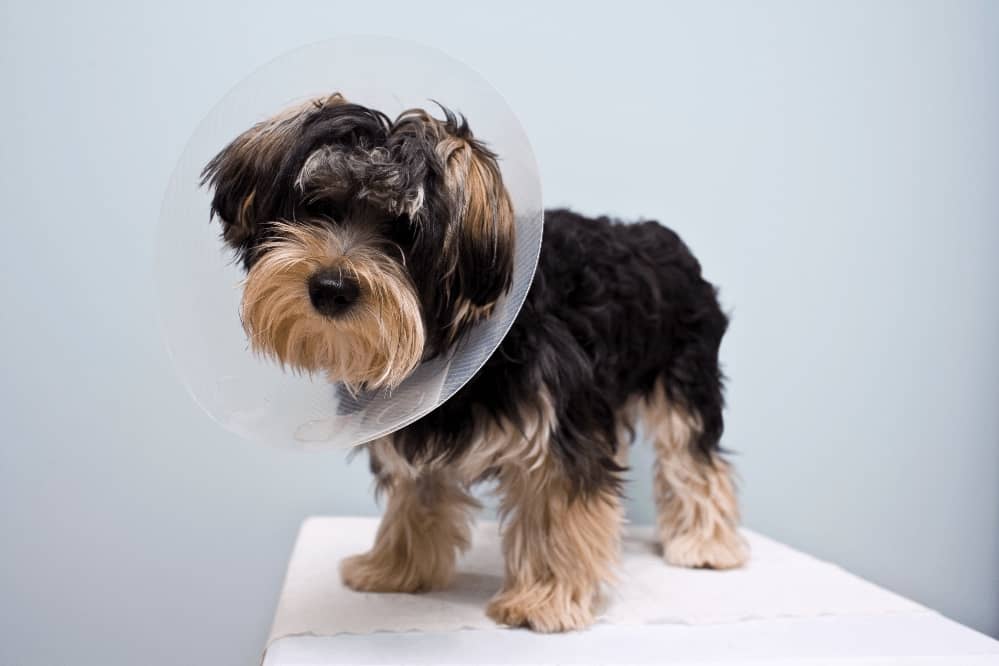Neutering is a common procedure for male dogs to undergo. Many people do this to help make their dogs easier to control, plus it also removes the possibility of making puppies.
But neutering is an operation, one with an incision, and that incision needs time to heal. Yes, Fido needs to go pee, but you need to be careful with movement after the surgery. So, how soon can I walk my dog after neutering?
What is Neutering?
In case you are not familiar with this term, this is another way of saying “castration.” Neutered dogs have had their testicles removed. The aim of this procedure is to stop the dog from having offspring. Removing the sexual organs may also have a calming effect on the dog. Neutered dogs tend to be much more peaceful than unneutered dogs.
How Soon After Neutering Can I Walk the Dog?
The official recommendation is that the dog gets very little (if any) exercise for the first 12 hours or so. The less movement the better or else it may cause pain and complications.
After the first 12 hours and up to the first 48 hours after neutering, dogs should be confined to very light exercise in the garden. In other words, the dog should be let out to pee and do its business, but not for real exercise.
After the first 48 hours, you can then take your dog on short lead walks, up to 10 or 15 minutes at a time. It is not recommended to walk your dog any more than this after neutering until you take the dog in to the vet for the post-op checkup.
Keeping an Eye on the Incision – The Cone
The reason why a dog cannot exercise too much after being neutered is because of the incision that was made. That incision is essentially a wound, a wound with stiches that needs to heal. If the dog walks or moves to much, it may open the wound, cause bleeding or an infection, or just ripping the stitches. Moreover, more movement is going to create more pain.
Therefore, you will want to check on the incision at least twice per day to make sure that everything is in order. If you notice any bleeding or what looks like an infection, take the dog back to the vet right away. What is also very important is that the incision is kept dry and left alone.
Dogs to have a tendency to lick their wounds, and this also goes for post-neutering. It is usually recommended that dog wears a cone around their neck for a few days until the incision heals, or else the dog will lick it and potentially cause complications.
What About Post-Neutering Eating?
It is important that your dog eats a good deal of food after the operation. Increased levels of calories, vitamins, and proteins will help the dog heal faster. It is recommended to follow an intestinal or recovery diet after surgery.
You should do a bit more research on this front, but this usually includes foods which stimulate the appetite, but are also fairly bland. The food needs to be fairly neutral so it does not upset your dog’s stomach, as the anesthesia used for the surgery can cause nausea.
How Long Will the Dog be at the Vet for?
When it comes to the neutering process itself, you can expect the preparation, surgery and recovery processes to take anywhere from 6 to 9 hours, depending on how busy the vet is. In most cases, dogs scheduled for neutering will be brought into the vet between 8 and 9 a.m., and will be ready to be discharged in the mid-late afternoon.
Keep in mind that the neutering procedure usually takes less than an hour to do, if even. The reason why dogs have to spend so long at the vet when being neutered is because the vet likes to allow the dog to get used to the kennel, and it also takes some time for those pre-operation drugs to kick in. It also takes some time for the dog to wake up after the operation.
What About Pain Management?
Unfortunately, due to the nature of this procedure, although the dog will not feel pain during the operation, they will feel some pain afterwards.
Dogs will usually be provided with pain management for 12 to 24 hours after the surgery, but that is about it. Some vets may recommend that you provide your dog with some over-the-counter pain killers to help alleviate pain, but give your dog only those the vet prescribes.
Conclusion
If you feel that it is necessary to neuter your dog, then you should always do the proper research first. When it comes to post-neutering care, be sure to limit exercise, provide some pain management for the dog, ensure that it eats right, and always keep an eye on that incision.

